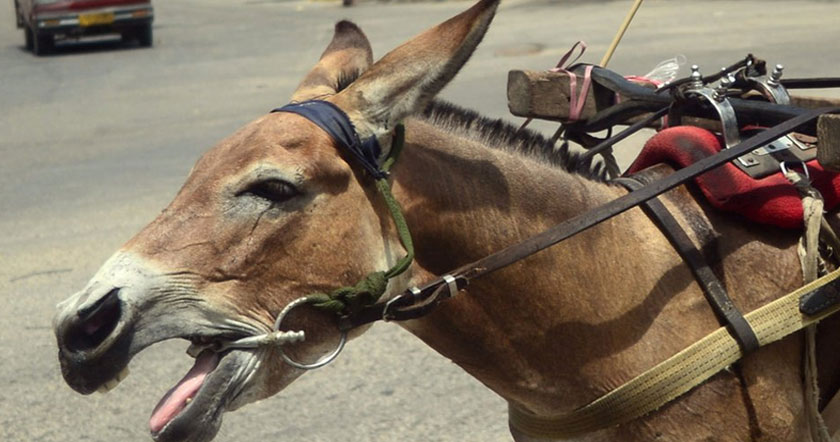
پاکستان سے چین کو گدھے کا گوشت اور کھال ایکسپورٹ کرنے کےحوالے سے قواعد وضوابط طے کرلیے گئے ہیں اور اس حوالے سے طے کردہ پروٹوکول کو حتمی شکل دیدی گئی ہے۔
تفصیلات ے مطابق سینیٹر انوشہ رحمان کی زیر صدارت سینیٹ کی قائمہ کمیٹی برائے تجارت کے اجلاس میں وزارت تجارت کے حکام نے انکشاف کیا ہے کہ چین کو گدھے کی کھال اور گوشت برآمد کرنے کے پروٹوکول کو حتمی شکل دیدی گئی ہے۔
اجلاس میں وزارت تجارت کے انچارج ایڈیشنل سیکرٹری احسن علی منگی نے کمیٹی کو بریفنگ دیتے ہوئے بتایا کہ چین کو گدھے کی کھالوں کو برآمد کرنے کے حوالے سے پروٹوکول تیار کرلیا گیا ہے،۔
چیئرمین قائمہ کمیٹی نے اس دوران کہا کہ صرف کھال ہی کیوں پورے گدھے کو ہی چین برآمد کیوں نا کیا جائے؟ ایڈیشنل سیکرٹری انچارج نے جواب دیا کہ ابھی فی الحال کھالیں ہی برآمد کی جاسکتی ہیں پورے گدھے کی برآمد کیلئے تبادلہ خیال کیا جارہا ہے۔
جس پر کمیٹی رکن سینیٹر سرمد علی بولے کہ گدھوں کی کھالیں برآمد کی جائیں گی تو گوشت کا کیا ہوگا؟ کیا اسے ملک میں فروخت کیا جائے گا؟
وزارت تجارت کے انچارج ایڈیشنل سیکرٹری نے جواب دیا کہ چین کو گدھوں کی برآمد پر کوئی پابندی نہیں ہے،گدھے کی کھال کے ساتھ ساتھ گوشت کو بھی فہرست میں شامل کرنے کی منصوبہ بندی کی جارہی ہے۔
انہوں نے مزید کہا کہ پاکستان سے چین کو آلو، پیاز اور مرچوں کی ایکسپورٹ کے پروٹوکول کو بھی حتمی شکل دیدی گئی ہے۔
اس موقع پر چیئرمین کمیٹی انوشہ رحمان نے کہا کہ پاکستان پیاز کی اپنی مجموعی مانگ کا صرف پانچواں حصہ پیدا کرتا ہے، اس صورتحال میں چین کو پیاز برآمد کرنے کا جواز کافی مشکل کام ہے۔
- Featured Thumbs
- https://www.siasat.pk/data/files/s3/china-donk11h.jpg



































